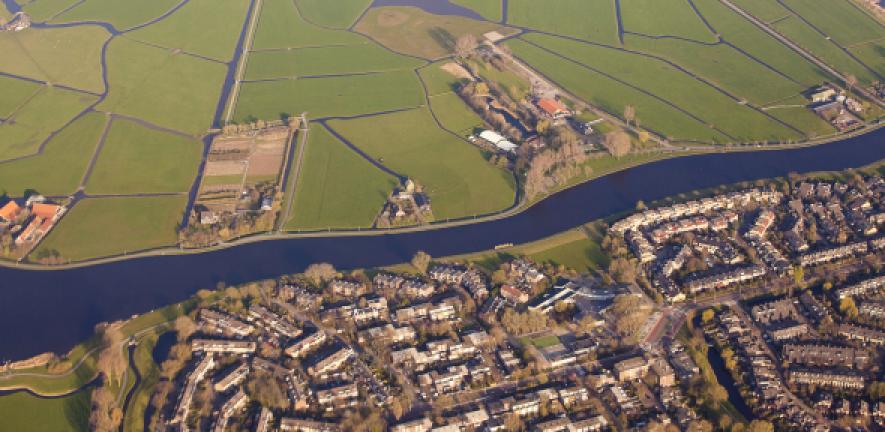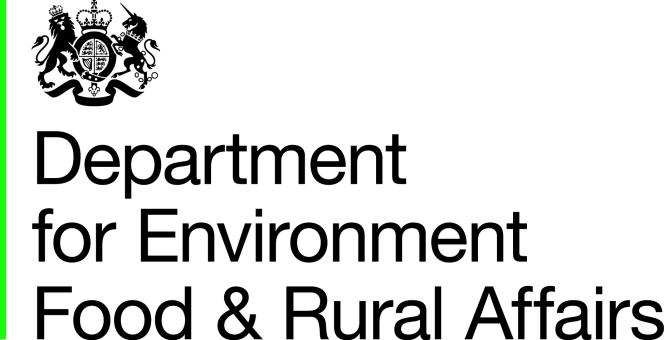
Isaac Newton Institute
Evidence Based Decisions for UK Landscapes - Rural and Urban Land use, Coastal and Inland Waters
Background
Stakeholders involved in the management of, and future planning for, the various landscape domains in the UK have to take into consideration numerous processes, interactions and high levels of complexity. So how can they make better evidence based decisions?
Our landscape is the product of natural resources, environmental processes, and how land is used, according to social, cultural and political drivers. Landscapes are always changing, being shaped by various interactions between geographical, climatic, socio-economic drivers of land use and the dynamics of ecological systems. We are only now developing the capability and the capacity to provide metrics to better understand these dynamics, and thereby make informed decision making. To move towards a new, holistic decision-making framework requires activities that develop a new community from the diverse research base, and expose this to the models currently being used to capture these complexities in order to understand their opportunities and weaknesses, and to expose the current approaches to new mathematical approaches.
Better methodologies need to be developed in order to improve research methods and models. This is critical in helping stakeholders to increase their understanding and more effectively manage and plan for the future of landscapes. Within landscapes, numerous processes operate and interact across different spatial and temporal scales. As well as physical and biogeochemical factors, anthropogenic (human activity) also has a big impact on landscape structures and this makes it extremely challenging to try and understand causal relationships between these structures and processes. Traditional approaches to land use and ecological modelling have tended to fall into two categories – pattern based or process based. However, new modelling approaches are now integrating human behaviour with other processes. This recognises the complex interactions between human decision making and ecological and environmental processes. Additionally, further challenges exist around verification and validation of model performance, particularly for those which seek to make predictions.
New approaches are needed to develop better linkages and integration between existing models, as well as new methodologies for decision making. This two day scoping workshop forms part of a programme of work, supported by the Natural Environment Research Council (NERC) on evidence based decisions for UK landscapes, with a focus on terrestrial land use (rural and urban), coastal and freshwater. The programme of work subsequent to this event is expected to include a funding call later in the year and a one month research programme at the Isaac Newton Institute in July 2019.
Aims and Objectives
The mathematical sciences are of fundamental importance to solving many ongoing problems across numerous scientific, societal and economic areas and never more so than today, where ‘big data’ continues to increase exponentially and uncertainty and risk predominate.
This workshop aimed to investigate new mathematical and statistical modelling techniques which can enable better evidence-based decisions to be made around UK landscapes. These need to be flexible enough to incorporate other models, whilst also taking into account many other highly complex factors across different landscapes. Areas of particular interest included:
- Identifying optimal use of land areas for specific purposes
- Defining national and regional scenarios to achieve multiple objectives from the management of the landscape
- Consideration of the complexity of landscape dynamics and land use across spatial and temporal scales within the UK
- Identifying the mathematical challenges.
Current approaches do not sufficiently capture the complex and competing ways we value the benefits from using land, to inform decisions at scales from regional to local that in turn impact on the flow and quality of ecosystem services. Decision making needs to:
- Inform on the tradeoffs between the environment, health, well-being, and the economy, and
- Include social, cultural and heritage consequences of interventions in both the short and long term.
This workshop brought together experts from a number of research disciplines and other key stakeholders to highlight relevant research and approaches to modelling uncertainty. A variety of mathematical areas were explored, including probability, numerical simulations, stochastic modelling, optimisation and uncertainty quantification.
This event was of interest to a range of UK environmental stakeholders and researchers from the mathematical, environmental, geographical, ecological and biological science areas. This included government/public sector, business, as well as organisations involved in urban planning, sea/inland waters and land conservation and management.
Registration and Venue
This event was initially by invitation, but we were also keen to hear from others from the various relevant communities who are interested in attending.
Nearby en-suite B&B accommodation was reserved at Westminster and Fitzwilliam College.
The workshop took place at the Isaac Newton Institute for Mathematical Sciences in Cambridge. Please see the Isaac Newton Institute website for further information about the venue.



